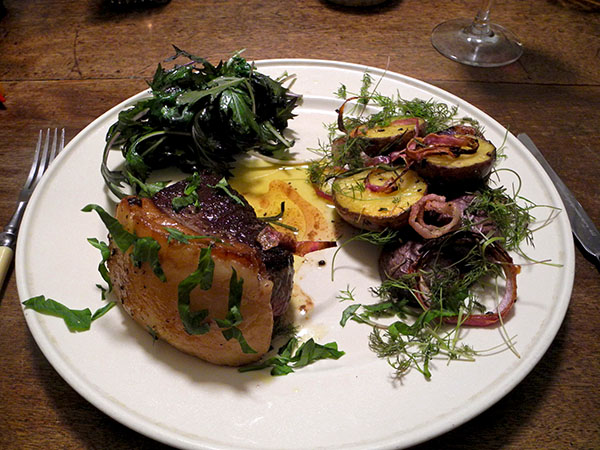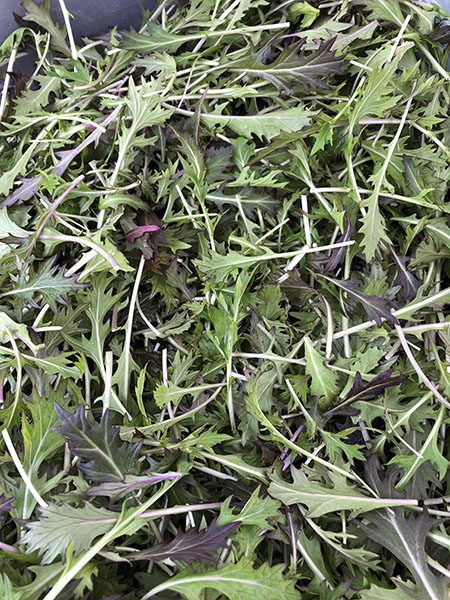
The beef was kinda purple-y, and so were the two vegetables, but the real story was how really, really good everything tasted.
In fact I think we both can say the potatoes especially were just about the best we’d ever had.


- *one 16-ounce culotte (the American spelling) steak from Greg and Mike of Sun Fed Beef/Maple Avenue Farms in the Union Square Greenmarket, cut crosswise into 2 pieces, brought to room temperature, seasoned on all sides with sea salt and freshly-ground black pepper, seared briefly on the top, or thick, fat-covered side (much of the fat is rendered in the cooking, and the rest just makes it it taste wonderful), inside an oval enameled cast iron pan, then cooked for about 4 minutes on each side, to rare-to-medium-rare, after which the narrow bottom side was seared briefly, removed from the pan, placed on warm plates, drizzled with juice from an organic Whole Foods Market lemon and some decent olive oil, sprinkled with chopped lovage from Two Guys from Woodbridge, and allowed to rest for about 4 minutes
- *one pound of so of Peter Wilcox potatoes (purple skin, golden flesh) from Tamarack Hollow Farm, scrubbed, skins left on, halved, tossed with a little olive oil, sea salt, freshly-ground black pepper, rosemary leaves from Phillips Farms, arranged, cut side down, on a large Pampered Chef unglazed ceramic pan, roasted at about 350º-375º for about 30 minutes, garnished with Micro bronze fennel from Two Guys from Woodbridge
- a couple handfuls of purple mizuna from Campo Rosso Farm, slightly wilted in a little Portuguese olive oil heated inside a large antique high-sided tin-lined copper pot, seasoned with sea salt, freshly-ground black pepper, arranged on the plates and drizzled with a little more olive oil
- *the wine was an absolutely terrific Portuguese (Douro) red, Quinta de Cidrô Touriga Nacional 2014, purchased in the Porto duty free shop last year
- *the music was Camille Saint-Saëns’ grand opera in 3 acts and 4 scenes, ‘Samson et Dalila’, which was completed in 1874 and premiered in Weimar in 1877, in a performance with Daniel Barenboim conducting the Orchestre de Paris and the Choeurs de l’Orchestre de Paris